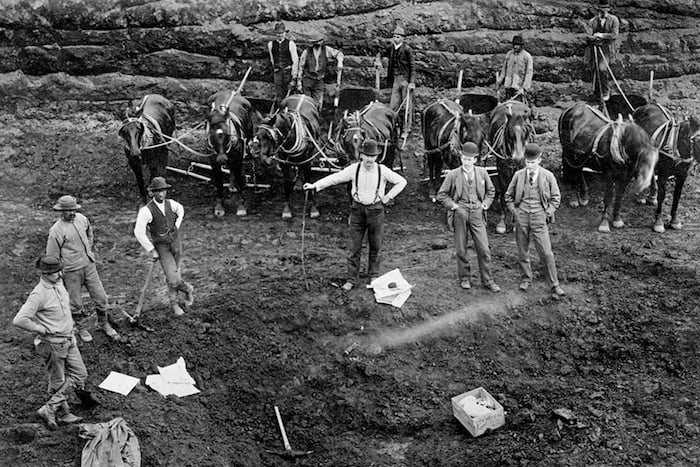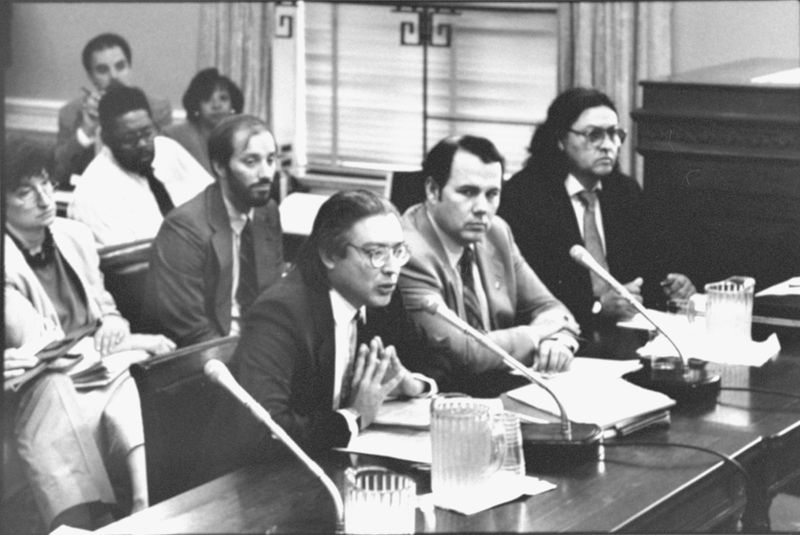Coconino County, Arizona
Institutions reported making 99% of the more than 2,800 Native American remains taken from Coconino County, Arizona available for return to tribes under NAGPRA.
There are 14 institutions that reported Native American remains taken from Coconino County, Arizona.
| Institution | Remains Not Made Available for Return | Remains Made Available for Return | % of Remains Made Available for Return |
|---|---|---|---|
| University of Arizona, Arizona State Museum | 9 | 0 | 0% |
| University of California, Berkeley | 6 | 0 | 0% |
| Museum of Northern Arizona | 4 | 1 | 20% |
| U.S. Department of Agriculture | 3 | 2,004 | 100% |
| Harvard University | 3 | 0 | 0% |
| U.S. Department of the Interior | 2 | 521 | 100% |
| Field Museum | 1 | 303 | 100% |
| Dartmouth College, Hood Museum of Art | 1 | 0 | 0% |
| Eastern Arizona College Foundation | 1 | 0 | 0% |
| Museum of New Mexico, Museum of Indian Arts and Culture | 1 | 0 | 0% |
| U.S. Department of Defense | 1 | 0 | 0% |
| University of New Mexico, Maxwell Museum of Anthropology | 1 | 0 | 0% |
| Grand Rapids Public Museum | 0 | 1 | 100% |
| S'edav Va'aki Museum | 0 | 1 | 100% |
Institutions made Native American remains taken from Coconino County, Arizona available for return to 29 tribes.
| Tribe | Remains Made Available for Return to Tribe |
|---|---|
| Hopi Tribe of Arizona | 2,819 |
| Zuni Tribe of the Zuni Reservation, New Mexico | 2,354 |
| Navajo Nation, Arizona, New Mexico and Utah | 201 |
| Kaibab Band of Paiute Indians of the Kaibab Indian Reservation, Arizona | 86 |
| Pueblo of Sandia, New Mexico | 83 |
| Havasupai Tribe of the Havasupai Reservation, Arizona | 79 |
| San Juan Southern Paiute Tribe of Arizona | 72 |
| Fort McDowell Yavapai Nation, Arizona | 68 |
| Hualapai Indian Tribe of the Hualapai Indian Reservation, Arizona | 68 |
| Yavapai-Apache Nation of the Camp Verde Indian Reservation, Arizona | 68 |
| Yavapai-Prescott Indian Tribe | 68 |
| San Carlos Apache Tribe of the San Carlos Reservation, Arizona | 67 |
| Tonto Apache Tribe of Arizona | 67 |
| White Mountain Apache Tribe of the Fort Apache Reservation, Arizona | 67 |
| Jicarilla Apache Nation, New Mexico | 66 |
| Mescalero Apache Tribe of the Mescalero Reservation, New Mexico | 66 |
| Las Vegas Tribe of Paiute Indians of the Las Vegas Indian Colony, Nevada | 19 |
| Moapa Band of Paiute Indians of the Moapa River Indian Reservation, Nevada | 19 |
| Paiute Indian Tribe of Utah | 19 |
| Salt River Pima-Maricopa Indian Community of the Salt River Reservation, Arizona | 5 |
| Ak-Chin Indian Community | 4 |
| Gila River Indian Community of the Gila River Indian Reservation, Arizona | 4 |
| Tohono O'odham Nation of Arizona | 4 |
| Apache Tribe of Oklahoma | 1 |
| Cocopah Tribe of Arizona | 1 |
| Colorado River Indian Tribes of the Colorado River Indian Reservation, Arizona and California | 1 |
| Fort Mojave Indian Tribe of Arizona, California and Nevada | 1 |
| Fort Sill Apache Tribe of Oklahoma | 1 |
| Quechan Tribe of the Fort Yuma Indian Reservation, California and Arizona | 1 |
Know how an institution is handling repatriation? Have a personal story to share? We'd like to hear from you.
Watch an informational webinar with our reporters.
This tool presents a dataset maintained by the National Park Service containing all the Native American human remains and associated funerary objects that institutions have reported to the federal government under the Native American Graves Protection and Repatriation Act. The dataset includes information about the state and county where remains and objects were taken from, which institutions hold them and whether they have been made available for return to tribes.
The data is self-reported by institutions. The amount of unrepatriated Native American remains reported by institutions is a minimum estimate of individuals and institutions frequently adjust these numbers when they reinventory groups of remains. Some institutions that are subject to NAGPRA have also entirely failed to report the remains in their possession. As a result, the numbers provided are best taken as estimates. The actual number and geographic scope of what’s held by publicly funded institutions is larger than what is presently documented.
ProPublica supplemented this dataset with information about cultural affiliation and disposition to specific tribes by systematically parsing the text of Notices of Inventory Completion published in the Federal Register. An additional dataset from the Department of Housing and Urban Development, the Tribal Directory Assessment Tool, was used for the section on remains not made available for return from counties that each tribe has indicated interest in to the federal government.
Institution location and tribal headquarters location information was provided by National NAGPRA. The location of some groups that are not federally recognized was provided through research by ProPublica.
Institutions that are part of a larger entity are grouped. (For example, the Mesa Verde National Park is part of the U.S. Department of the Interior.)
Institutions that have not submitted information to the federal government are not listed. The Smithsonian Institution is not listed because its repatriation process falls under the National Museum of the American Indian Act and it is not required to publicly report its holdings with the same detail as institutions subject to NAGPRA.
If you work for an institution and would like to provide comment on your institution’s repatriation efforts, please email [email protected]. If you think the data is incorrect or have a data request, please get in touch. We are aware of some issues with the accuracy of location information and tribes mistakenly being identified for disposition of Native American remains in published notices.
If you want to share something else with ProPublica, we’d like to hear from you.
If you have questions about implementing or complying with the Native American Graves Protection and Repatriation Act, get in touch with National NAGPRA or the NAGPRA Community of Practice.
We use the word “tribes” to refer to all groups that institutions made Native American remains available to under NAGPRA. This includes tribes, nations, bands, pueblos, communities, Native Alaskan villages, Native Hawaiian organizations and non-federally recognized groups.
Data sources from Department of the Interior, National Park Service, National NAGPRA Program, the Federal Register, Department of Housing and Development, Tribal Directory Assessment Tool


